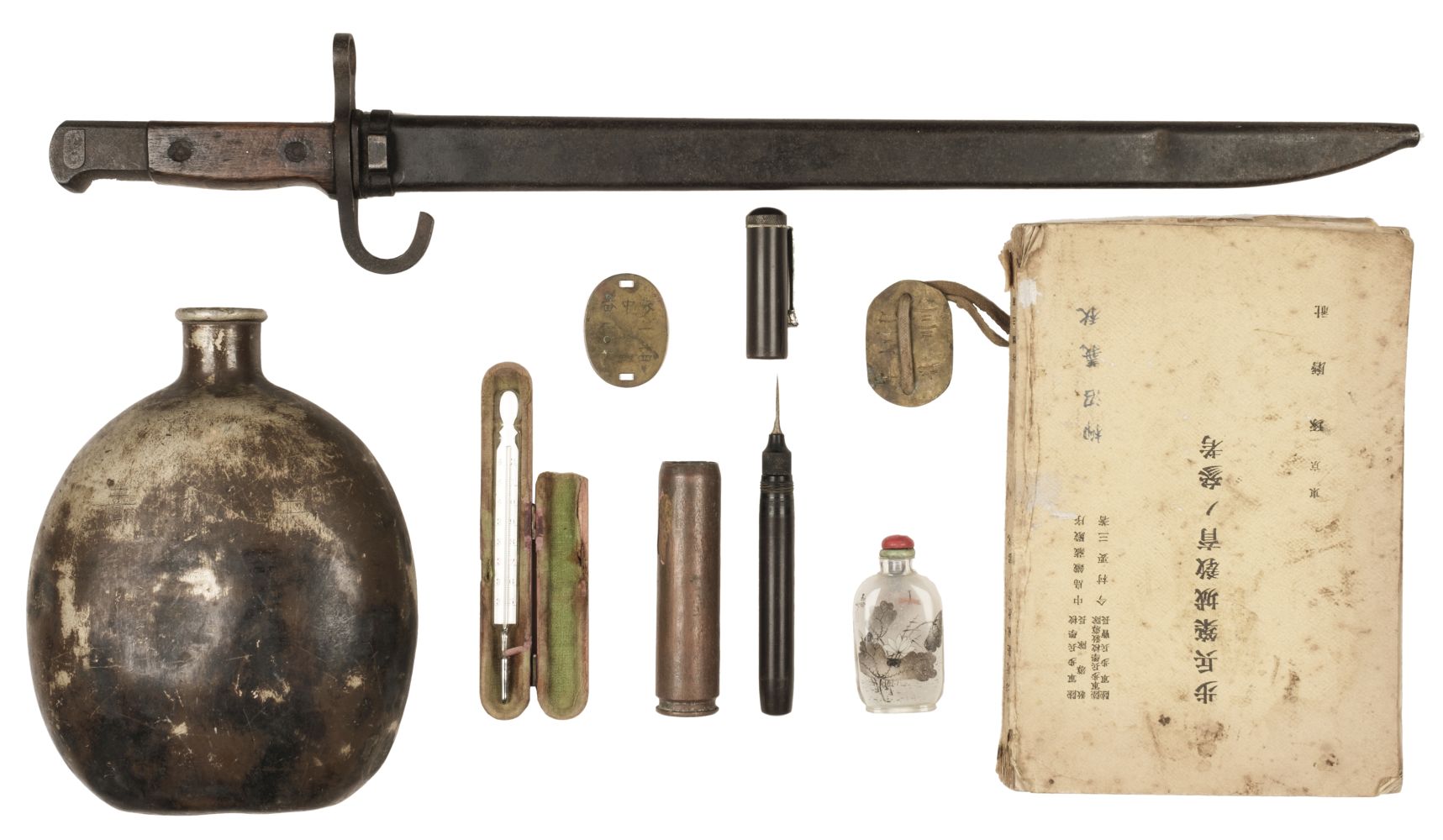Pair: Lieutenant-Colonel A.G. Spratt, Devonshire Regiment India General Service Medal 1895-1902, V.R., 2 clasps, Punjab Frontier 1897-98, Tirah 1897-98 (Major A.G. Spratt 1st Bn Devon Regt), engraved in running script, Queen's South Africa Medal 1899-1902, Cape Colony, Transvaal, South Africa 1901, South Africa 1902 (Major A.G. Spratt, Devon Rgt:), 1st, the clasps and suspension are bent otherwise good very fine and an attractive tone to both, with copied papers and research (Quantity: 2) Provenance: DNW (now Noonan's), 25 September 2019, lot 271. Arthur Graves Spratt was born in Malta in 1854. He was the third son of Vice-Admiral Thomas Abel Brimmage Spratt, C.B., F.R.S., F.S.A., F.R.G.S. (1811-88) and grandson of Commander James Spratt, R.N. (1771-1853), who distinguished himself, when a Master’s Mate in H.M.S. Defiance at the Battle of Trafalgar, in boarding the French ship L’Aigle. Spratt was commissioned Sub-Lieutenant in 1st West India Regiment in 1874 and advanced to Lieutenant two years later. Between 1880 and 1882 he was stationed at Fort Adjutant on the Cape Coast Castle, Gold Coast and promoted to Captain in 1882. Spratt exchanged to 1st Battalion, The Devonshire Regiment in 1883 and was stationed in Dublin. He advanced to Major in 1892, by which time the Battalion had moved to Alexandria, in Egypt, but had been warned for posting to India in 1893. The Battalion served on the North-West Frontier 1897-98 as part of the Tirah Field Force and Spratt subsequently received the India Medal 1895-1902, with clasps ‘Punjab Frontier 1897-98’ and ‘Tirah 1897-98’, having been present at the capture of the Sampagha and Arhangha passes. Spratt next served as Second-in-Command of the 2nd Battalion during the Second Boer War, subsequently receiving the Queen’s South Africa Medal 1899-1902 with four clasps. He retired in 1902, and resided in Brampford Speke, Devon. On the outbreak of the Great War, Spratt briefly commanded the 3rd/4th (subsequently the 4th Reserve) Battalion of his regiment but was retired with the honorary rank of Lieutenant-Colonel in March 1916; he does not appear to have qualified for, or claimed, any First World War campaign medals. He died, unmarried, in Brampford Speke in March 1939 and was buried in the parish churchyard.
Pair: Lieutenant-Colonel A.G. Spratt, Devonshire Regiment India General Service Medal 1895-1902, V.R., 2 clasps, Punjab Frontier 1897-98, Tirah 1897-98 (Major A.G. Spratt 1st Bn Devon Regt), engraved in running script, Queen's South Africa Medal 1899-1902, Cape Colony, Transvaal, South Africa 1901, South Africa 1902 (Major A.G. Spratt, Devon Rgt:), 1st, the clasps and suspension are bent otherwise good very fine and an attractive tone to both, with copied papers and research (Quantity: 2) Provenance: DNW (now Noonan's), 25 September 2019, lot 271. Arthur Graves Spratt was born in Malta in 1854. He was the third son of Vice-Admiral Thomas Abel Brimmage Spratt, C.B., F.R.S., F.S.A., F.R.G.S. (1811-88) and grandson of Commander James Spratt, R.N. (1771-1853), who distinguished himself, when a Master’s Mate in H.M.S. Defiance at the Battle of Trafalgar, in boarding the French ship L’Aigle. Spratt was commissioned Sub-Lieutenant in 1st West India Regiment in 1874 and advanced to Lieutenant two years later. Between 1880 and 1882 he was stationed at Fort Adjutant on the Cape Coast Castle, Gold Coast and promoted to Captain in 1882. Spratt exchanged to 1st Battalion, The Devonshire Regiment in 1883 and was stationed in Dublin. He advanced to Major in 1892, by which time the Battalion had moved to Alexandria, in Egypt, but had been warned for posting to India in 1893. The Battalion served on the North-West Frontier 1897-98 as part of the Tirah Field Force and Spratt subsequently received the India Medal 1895-1902, with clasps ‘Punjab Frontier 1897-98’ and ‘Tirah 1897-98’, having been present at the capture of the Sampagha and Arhangha passes. Spratt next served as Second-in-Command of the 2nd Battalion during the Second Boer War, subsequently receiving the Queen’s South Africa Medal 1899-1902 with four clasps. He retired in 1902, and resided in Brampford Speke, Devon. On the outbreak of the Great War, Spratt briefly commanded the 3rd/4th (subsequently the 4th Reserve) Battalion of his regiment but was retired with the honorary rank of Lieutenant-Colonel in March 1916; he does not appear to have qualified for, or claimed, any First World War campaign medals. He died, unmarried, in Brampford Speke in March 1939 and was buried in the parish churchyard.















Testen Sie LotSearch und seine Premium-Features 7 Tage - ohne Kosten!
Lassen Sie sich automatisch über neue Objekte in kommenden Auktionen benachrichtigen.
Suchauftrag anlegen